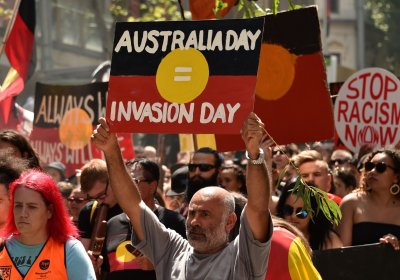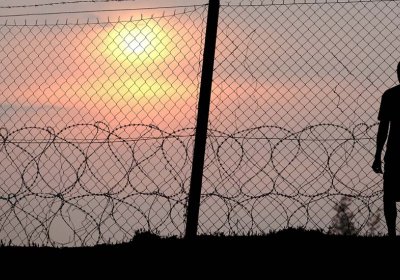On January 24, Victorian Liberal opposition leader Matthew Guy said “unpatriotic councils” that do not use January 26 to celebrate would be sacked. He was specifically threatening the Moreland, Darebin and Yarra councils, which have shifted celebrations and citizenship ceremonies away from January 26.
Lalitha Chelliah
The enormous — some estimate 60,000-strong — Invasion Day rally in Melbourne was a fitting rejoinder to the conservative campaign pushed by the mainstream media and politicians in the lead-up to January 26.
The right-wing Institute of Public Affairs released a poll on January 24 that, unsurprisingly, found just 11% of those surveyed want the date changed.
The decision by state and territory leaders at the recent Council of Australian Governments (COAG) meeting to give the federal government real time access to data, including driver's licences, is the latest measure likely to undermine civil liberties in the government’s so-called war on terror.
Sustainable Agriculture vs Corporate Greed: Small farmers, food security & big business
By Alan Broughton & Elena Garcia
Resistance Books
104pp, pb
$15.00
Today, as vaccinations are being used as a political weapon, we need to look again at the science and when, where and how they matter. We also need to question whether the punitive way the major parties are driving policy on immunisations will increase the vaccination rate.
Over hundreds of years, immunisation has been scientifically proven to prevent many diseases. It is worth examining some of the history that promoted the realisation that diseases can be prevented.
Trevor Grant passed away on March 6, after a long battle with asbestos-caused mesothelioma.
Trevor was well known as a sports reporter, particularly for his reporting on AFL, for many Melbourne newspapers. While the mainstream media has focused on that aspect of his life, what was not mentioned was the contribution he made to the community via 3CR, a community radio station in Melbourne, and as convenor of the Tamil Refugee Council.
Farmers, fisherfolk and students across the Indian state of Tamil Nadu have been protesting since January 16 to protect the region’s tradition of Jallikattu (bull taming).
Usually conducted in January during Pongal (harvest) festival, it creates economic gains for farmers across the state of 70.5 million people.
Jallikattu is a 2000-year-old cultural practice in Tamil Nadu, where youth seek to hold on to the hump of a bull as a display of courage. There is evidence of this sport in the ancient literature and in sculptures across the temples in Tamil Nadu.
Long-term US activist Angela Davis addressed an overflowing lecture theatre at Melbourne University on October 24.
In a wide-ranging lecture and discussion, Davis looked at the criminalisation and incarceration of communities most affected by poverty and racial discrimination.
Davis drew upon her own experiences in the 1970s, when she spent 18 months on trial after being placed on the FBI’s “Ten Most Wanted List”.
Jorge Knijnik is a researcher at the Institute for Culture and Society at the University of Western Sydney, and specialist in sport and social justice issues. He spoke to Lalitha Chelliah from the Solidarity Breakfast Show on Melbourne community radio station 3CR on August 6 about the many social issues swirling around the 2016 Rio Olympics. Below is an edited and abridged transcript.
 Kokilavany is contesting in the Sri Lankan parliamentary election in 2015 on behalf of the All Ceylon Tamil Congress Party, which is part of the Tamil National People’s Front (TNPF). She spoke to Lalitha Chelliah on Community Radio 3CR's Tamil Manifest program on August 1.
* * *
Kokilavany is contesting in the Sri Lankan parliamentary election in 2015 on behalf of the All Ceylon Tamil Congress Party, which is part of the Tamil National People’s Front (TNPF). She spoke to Lalitha Chelliah on Community Radio 3CR's Tamil Manifest program on August 1.
* * *










